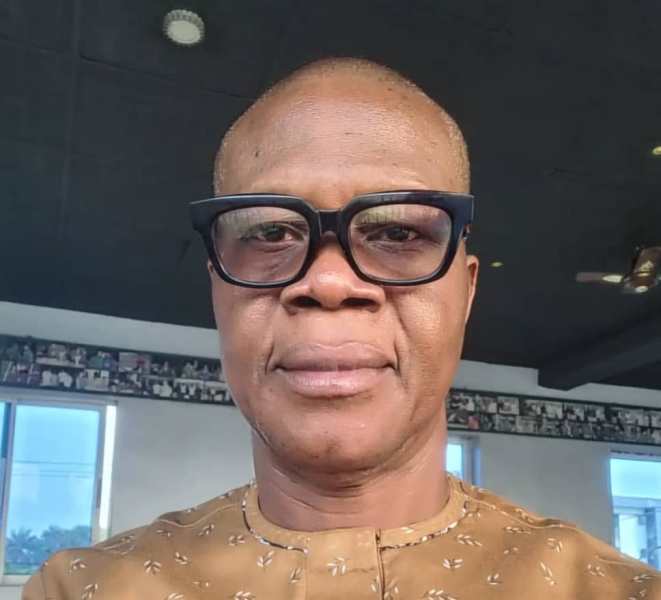Betrayal is a deep knife wound that only heals with time, forgiveness, and willingness to rebuild trust.” Unknown
Benjamin Mokwunye
Mallam Nasir El-Rufai, former governor of Kaduna state belongs to the exclusive league of entitled Nigerians who demand special treatment even though they have done little or nothing to earn it. But this sense of entitlement that is growing in leaps and bounds in Nigeria today, especially in political circles, does invalidate the fact that El-Rufai is competent, skilled and knowledgeable in his field as a professional Quantity Surveyor. However, whether he conducts himself with utmost professionalism and good faith, especially in politics, remains to be seen.
To say that Mallam El-Rufai has held and enjoyed high-profile political appointments involving significant public attention and responsibility in Nigeria, is to put it mildly. This bold but cantankerous politician from Kaduna State, it will be recalled, suddenly came into limelight, during President Olusegun Obasanjo’s first tenure between 1999 and 2003. With the instrumentality of Atiku Abubakar, Obasanjo’s vice president, El-Rufai entered government in grand style. He came first as Director-General, Bureau of Public Enterprises and later, Minister of the Federal Capital Territory from 2003 to 2007. During the Obasanjo and Abubakar regime, El-Rufai, as Minister of the FCT, took far-reaching decisions on housing and urban development that had significant impact on people and livelihoods in Abuja. It was a period when the fear of El-Rufai and his bulldozers were the beginning of wisdom. No one, no matter how highly placed, crossed the FCT Minister’s path without one terrifying experience or the other.
For instance, under the Obasanjo regime, it was generally believed in Abuja and its environs, that El-Rufai, at the time, the charming prince of Nigeria’s ruling class, acted in blatant disregard for ethical conduct in the way and manner he demolished buildings. Till today, many people, including those in the Peoples Democratic Party, PDP, still believe that the former Minister of the FCT was one of those who pioneered impunity and the lack of accountability that we see today in different parts of Nigeria, regardless of party affiliation.
In all that he did during the time under review, he enjoyed “presidential protection”, first from Vice President Atiku Abubakar who brought him to power in the first instance, and later, President Olusegun Obasanjo, the president who “adopted” him as a son.
Shortly after the end of the Obasanjo and Abubakar tenure, El-Rufai wasted no time biting the fingers that fed him. First, he wrote a controversial book with the title, Accidental Public Servant, where he took Atiku Abubakar to the cleaners. I remember reading that book where he portrays Abubakar as a very corrupt person. Many people who came across that autobiography were disappointed in the manner and way he treated a great benefactor like Abubakar. However, in an interview by Premium Times of November 15, 2016, Abubakar presented his own side of the story in an attempt to clear his name. “Did he give any evidence or prove where I was corrupt? Abubakar asked. “Again, this is the same El-Rufai whom I was instrumental in bringing into government and making him Direct-General of the Bureau of Public Enterprises, BPE, and eventually a minister.”
In MY WATCH, Olusegun Obasanjo’s celebrated autobiography that the former president penned shortly after leaving office, Obasanjo says a mouthful. “I recognized his weakness; the worst being his inability to be loyal to anybody or any issue for long, but only to Nasir El-Rufai. I have heard of how he viciously savaged the reputation of his uncle, a man who was like his foster father. Character wise, Nasir has not much going for him. My vivid recollection of him is his penchant for lying, for unfair embellishment of stories and his inability to sustain loyalty for long.”
The point, and this is verifiable, is that El-Rufai is always quick to renounce his benefactors once he accomplishes his objectives in politics. And this has occurred many times in a consistent, predictable and repetitive manner. A former senator that represented Kaduna Central District, Shehu Sani once claimed that the former FCT Minister is not new in the game of using and dumping leaders. According to Sani, “He came from a political establishment. For the 16 years of PDP rule, he spent 13 years as a PDP man, he was never known until 1999 when he was appointed the DG of Bureau of Public Enterprises and later, Minister of FCT. This was a man who used to call Obasanjo his mentor and he used to call (late) Umar Yar’Adua his mentor and teacher, and he used to call Jonathan Goodluck his very good leader, and now, Buhari. What I know is that the Nasir el-Rufai that betrayed Atiku, betrayed Obasanjo and Jonathan will also betray Buhari.”
El-Rufai has also been described as a negative disruptor in Nigeria’s highly fluid and anarchic politics. Gbade Ogunwale, a public affairs commentator, in a piece a few days ago, with the title: How Tinubu’s Counter Coup Pushed El-Rufai Out of APC, captures nearly every aspect of El-Rufai’s political opportunism that has at the moment, pushed him to a tight corner. According to Ogunwale, it all began with General Muhammadu Buhari’s election in 2015 and the unwarranted attacks against Asiwaju Bola Ahmed Tinubu who was publicly acknowledged by Buhari for making his dream come true as a president after three failed attempts. But this open recognition did not go down well with the former FCT Minister. With the connivance of the presidency and Buhari, Tinubu who had become the National Leader of the All Progressives Congress, APC, was shut out from Aso Villa. This became possible through El-Rufai’s divisive rhetoric and politics of opportunism that eventually sowed the seeds of discord between Buhari and Tinubu. For self-serving reasons, the former governor of Kaduna State took on the former governor of Lagos State all through Buhari’s first tenure.
According to Ogunwale, “then El-Rufai came out in the open. He took upon himself, the task of “demystifying” Tinubu by rallying some of the man’s political associates for “insurrection” against their leader. From his base in Kaduna, he became a regular visitor to Lagos, which is the nucleus of Tinubu’s political base in the Southwest. He spared no expense as he openly canvased an end to the era of political godfathers. It was during one of his “missionary journeys” that he asked an incumbent Lagos governor: “When are you going to retire your godfather from politics?” And the then first term governor replied” “Second tenure.” And this was a young man who, against all odds, rode on the godfather’s shoulders to the Lagos government house.”
As they say, the rest is history.
In addition, and this is very important, before Tinubu emerged as the presidential candidate of the APC in the 2023 presidential contest, El-Rufai showed up again. This time, he went for the jugular. As usual, he also chose to fight from within. He conscripted some of Tinubu “loyalists” like Professor Yemi Osinbajo, Kayode Fayemi, Ibikunle Amosu and even Rauf Aregbesola all in a bid to weaken the godfather of Lagos politics as he fought for the ticket of his party. Luckily for Tinubu, it all came to naught.
Mallam El-Rufai may consider himself remarkably resilient and lucky for always surviving dangerous political situations that would have been fatal for any other politician. But under President Tinubu, he should have known that surviving perilous political situations like the past, would not be as easy in the present. I am sure he would have learnt some useful lessons from his rejection at the Senate Ministerial Screening two years ago.
Now knows that he is dealing with a master of political intrigues, a politician who has a good understanding of politics and nearly all the issues around it. So, he must brace up, and try not to be too overtly smart next time even as he gigins a new political journey in another party.
*Mokwunye, a lawyer and public affairs analyst, lives in Lagos.





























































